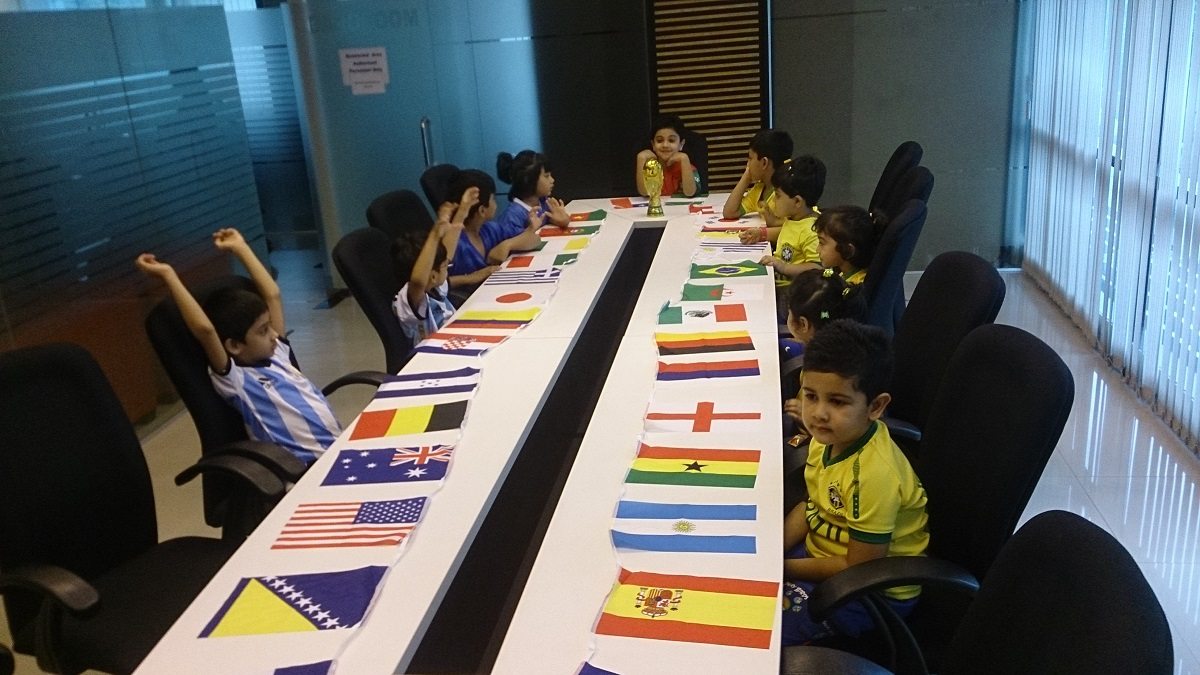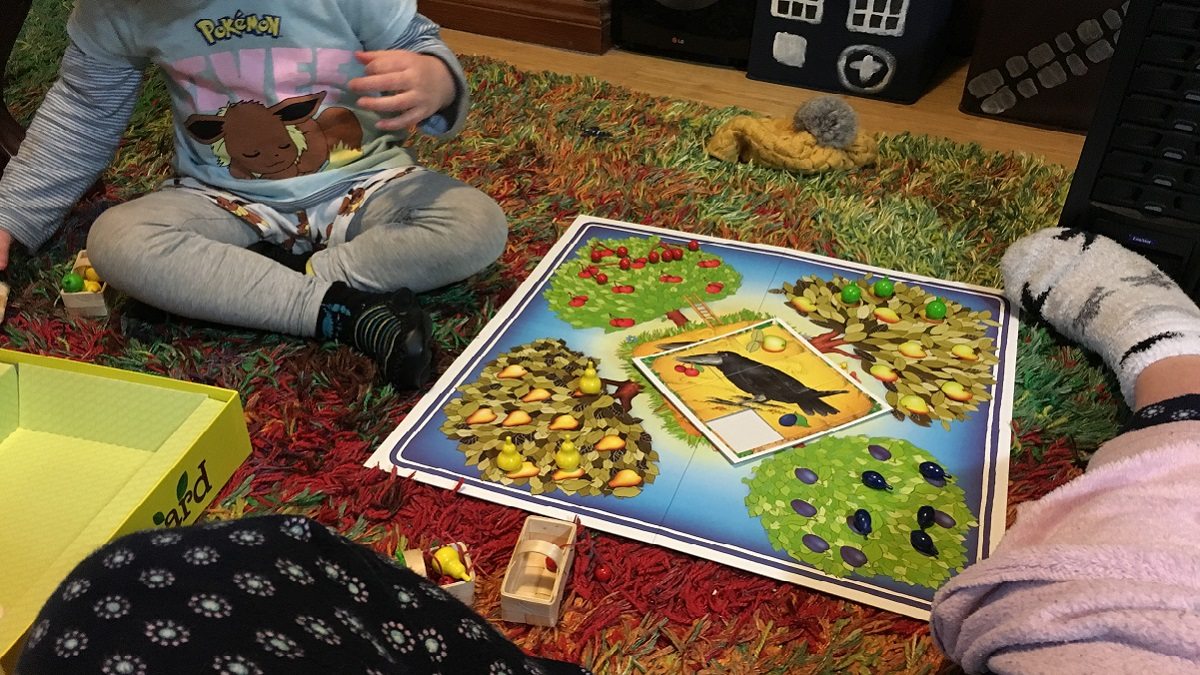Our eldest spawnling starts High School this year—in Australia, this means he starts Year 7 in about three weeks’ time. Out of all the orientation days and information packs, the part he is most excited about is learning Spanish. Sinister (11YO) has never had the opportunity to study a foreign language at school before; it was never offered at his public primary school. However, I have been more surprised by the discussions with other school parents: apparently a foreign language isn’t the most ideal subject for university/college scholarships—like that is the only reason you would study a foreign language. What the Geek?!? Parents, I have seven reasons why you should be studying foreign languages at any age…And another five suggestions on how to make it really easy for your family.
1. Good for Understanding Your Native Tongue
The number one thing I noticed from learning foreign languages is how much it improved my basic understanding of my native tongue. For ages, I thought it was just my own quirk but research has shown learning another language can enhance your knowledge of structure and vocabulary in your original language. This is across race, gender, and academic level—it’s a universal benefit. And the best part is, you should start seeing the benefits after the first semester.
2. Good for Multi-Tasking
Okay, this one won’t happen overnight but it has been proven to encourage greater multi-tasking. There will come a time when you seriously cannot help but automatically think of ‘pig’ as ‘buta’ (Japanese) or ‘apple’ as ‘mela’ (Italian). You find yourself flipping between languages and multi-tasking between words and structure. An added bonus is the ability to quickly sort through the multi-tasking and prioritize the information presented. An important skill for any parent, I would think.
3. Good for Preventing Dementia/Alzheimer’s
This is not anything new but the importance is what keeps it in the news. I mean, let’s face it: if you knew a way to improve your chances of a long, healthy, and full-cognitive life then what would stop you from implementing it? Studying a foreign language has been shown to do exactly that. But there is a catch… you have to consistently practice it, every day. That random Dora the Explorer episode isn’t enough. Start young and create the habit. It’s worth it.
4. Good for Empathy
The easiest way to gain insight to another culture is to learn their language. Studying Japanese introduced me to multiple levels of “polite-speak,” showing me the social hierarchy that exists in their culture. This also leads to a better understanding of “face” in many Asian cultures; There are social situations where the Japanese word for yes actually means no. Studying a foreign language is like opening a door to all of these cultural and language differences. And I cannot stress how important this is going to be for our kids’ professional futures. More and more jobs are now available remotely, which means our kids are no longer competing for jobs with Billy and Sue from school; they are now competing for jobs with Saul and Javier and Alexis and Mizuki and everyone else. Showing some global awareness, with both your heart and your language, is a benefit to everyone around you.

5. Good for Pattern-Recognition (Across All Disciplines)
There’s a bit of debate as to which is the cause and which is the benefit, but research has shown a link between learning a foreign language and pattern recognition. While there is support in saying pattern recognition helps you learn multiple languages, there is also argument in the same reversed. After spending hours on end with French verbs, you too will be able to recognize patterns in words and sounds. The bonus news is how this affects your studies across other disciplines. Pattern recognition is an essential skill in many different areas, and is possibly related to an increase students gain in standardized testing. The kids who have better pattern recognition will do better across all subjects, not just languages.
6. Good for Social Skills
If you are concerned your kids are never listening to you, throw them in a foreign language class. Studies have shown multilingual people are better at picking out the different sounds and tones found within language. Sometimes this is due to attention required in pronunciation; sometimes it is purely because we missed half the sentence and we are desperately trying to figure out what you said just from the inflection of your voice. And that is a GOOD thing. Because it means we are paying attention to you, and that is a very good social skill to have.

7. Good for Broadening Your Horizons
When studying French at school all I ever wanted was to travel to France. I never made it *sad panda* but I did make it to Italy, and was subsequently amazed at how much easier it was to pick up Italian (sidenote: I was constantly asked by locals if I was from the north because of my French-sounding Italian… there are consequences). Every time I study another language, even just a little bit, it opens up a whole new geography for me. You need some contextual understanding to go with the language. Studying a foreign language opens this up for you. Even with the basics, you can travel and show locals how willing you are to experience their part of their world. And if you are still thinking about career prospects, this worldly experience is great for the CV.

Fairly convincing argument, you might say. With all of these benefits, the only question left is:
“Well, smarty pants. What’s the easiest way to start?”
Funny thing is: you can introduce another language in every day activities you are already doing.
- There’s an App for That: our family favorite is Duolingo. EG Dad and Sinister are currently learning Spanish for their dream holiday to the Galapagos Islands; Nefarious and I are studying Danish for a similar trip to Denmark. Zaltu is eager to learn some Italian with me but at four years old, she’s a bit young for the app. We can share tips and encouragement (and some friendly competition). It’s free with ads, or you can pay for a few bonuses.

Some friendly competition always helps / Screenshot of EG Mum on Duolingo - Television: Fellow GeekMom extraordinaire Patricia suggested a cool website providing podcasts (and transcripts) of the latest news in French, Italian, Spanish, or German. The website is http://newsinslow.com/ and it has a very easy to navigate site. Choose your language on the front page and go from there. In Australia, we also have SBS (television station with radio, podcast, and websites). We can access the news and weather in multiple languages, as well as movies, tv shows, and other services.
- Tabletop/Boardgames: You don’t need any special games for this. Chances are you have at least one game that is suitable in your collection. Our favorite is Orchard from Haba. It is a cooperative game aimed at young children; however we often have the older kids join in for a quick game or two (you can read about my review on my personal blog). All we do is call out the fruit or colors in Italian, rather than English. For example, we say mele verdi rather than green apple. There is always a cheer for the bonus cestino (basket) and a groan for the corvo (raven). A few basic words are all you need as a gateway…

Photo by EG Mum / Using Tabletop games to study a foreign language - Road-trip games: This is a lot like the tabletop/boardgames. Work with what you already know. Use directions in a foreign language. Use landmarks. Play I Spy. The trick is to keep it to a small vocab list and extend gradually.
- Books: I am prepared for the onslaught but here’s my confession: I write in books. Not every book. Only the books requiring translation. There are some books which deserve to be read in their original language, and sometimes it requires a bit of note-taking. I’m not the only monster in the village; when EG Dad travelled to Ireland many moons ago, he struck up a conversation with a German lady on the flight. She ended up giving him a book to read about Ireland, apologizing for the German notes written throughout. Personally, we like the idea. It adds a touch of character to the book and its history. Do not be afraid to do the same. Introduce some old favorites (our Italian library had a great collection of Spot and Maisy; however I do NOT recommend writing notes in library books).
See, it’s easy! The hardest part is choosing a language to study! We have a few students amongst our GeekMom writers, so share your tips and questions in the comments. Bonne chance, mes amis!





Beautiful and well-thought reasons to learn a new language. Thank you so much.
I also wrote why is it important to learn a foreign language and how to do so. I spent a year in South America and learnt Spanish. It was a fun experience. Do visit my blog and let me know if you like the article.
Thanks for the wonderful article again.
really great and useful article! I also think about a second education with a new language, but there are some doubts. however, is it really a problem when you have for example an online assistant such as WriteMyEssayOnline? I don’t think so 🙂
really great and useful article! I also think about a second education with a new language, but there are some doubts. however, is it really a problem when you have for example an online assistant such as WriteMyEssayOnline? I don’t think so 🙂